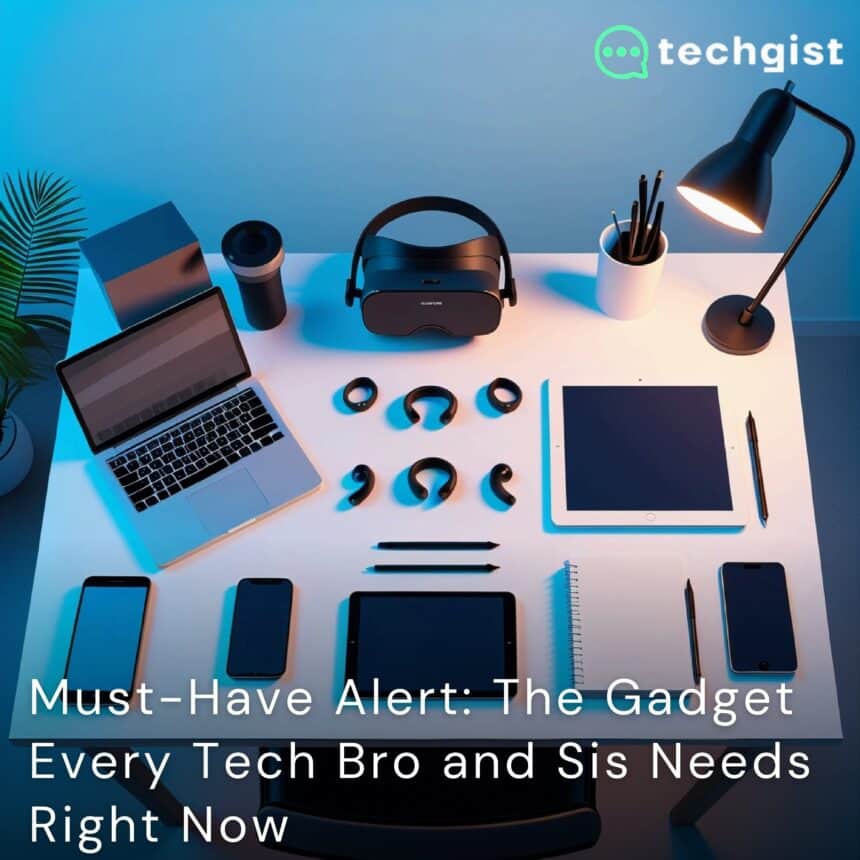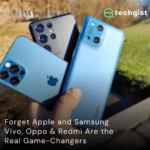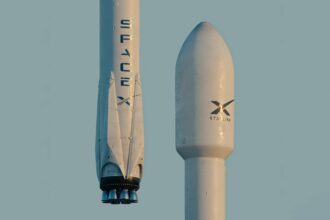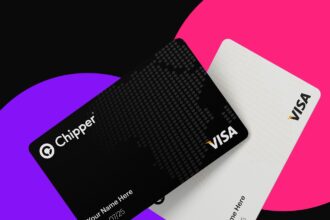Hey, tech bros and sis across Nigeria and Africa! The tech scene in Nigeria, from Lagos to Abuja, and across hubs like Nairobi and Accra, is buzzing with innovation. Whether you’re coding apps, designing interfaces, or analyzing data, you need gadgets that match your hustle without breaking the bank. This post is for every Nigerian and African techie looking to thrive in 2025.
Why the Right Gadgets Matter in Nigeria and Africa?
Africa’s tech industry is on fire—Nigeria’s fintech giants like Flutterwave and Paystack, and developer communities across the continent, prove it. But power outages, mobile-first economies, and tight budgets shape our choices. We need gadgets that deliver performance, portability, and value, especially in Nigeria’s unpredictable environment. Let’s check out two standard PCs and a mobile device, with specific models and their potential fit for Techies.
Essential Gadget #1: Standard PC Option 1 – Lenovo IdeaPad 5 Pro
For techies on a budget, the Lenovo IdeaPad 5 Pro (AMD Ryzen 7 5800U) is a powerhouse that balances cost and capability, perfect for Nigeria’s tech scene.
Why the Lenovo IdeaPad 5 Pro?
- Specs That Deliver: Features an AMD Ryzen 7 5800U processor, 16GB RAM, and a 512GB SSD. It handles coding, design, and data analysis smoothly, with AMD Radeon graphics for light creative work.
- Portability: Weighing ~1.4kg with a 14-inch 2.2K IPS display, it’s ideal for moving between coworking spaces or university campuses like UNILAG or KNUST.
- Battery Life: Up to 12 hours, crucial for working through power outages. Pair with a power bank for extra juice.
- Build: Sturdy aluminum chassis survives daily commutes, from Lagos danfos to Nairobi’s busy streets.
- Price: ~₦850K–₦950K on Jumia, Konga, or Techmall Nigeria.
Tech Industry Uses
Software Development: Runs VS Code, Android Studio, or PyCharm for building apps or contributing to open-source projects, popular among African devs.
UI/UX Design: Supports Figma and Adobe XD for designing UI/UX interfaces.
Data Science: Processes datasets in Python or R.
Content Creation: Edits podcasts or tech vlogs using Audacity or DaVinci Resolve for Nigeria’s creator economy.
Essential Gadget #2: Standard PC Option 2 – HP Pavilion 15
The HP Pavilion 15 (Intel Core i5-1235U) is another solid pick, offering versatility and performance for techies who need reliability on a budget.
Why the HP Pavilion 15?
- Specs for Multitasking: Powered by a 12th Gen Intel Core i5-1235U, 16GB RAM, and a 512GB SSD, it’s great for coding, browsing, and creative tasks. Intel Iris Xe graphics handle light editing.
- Display & Portability: 15.6-inch Full HD display is great for presentations or debugging code. At ~1.7kg, it’s manageable for travel across Accra or Abuja.
- Battery Life: ~8–10 hours, enough for a day’s work, especially with Nigeria’s power challenges.
- Build Quality: Durable plastic chassis with a sleek design, built for daily use in bustling cities.
- Price: ~₦650K–₦800K via Pointek, Slot, or Jumia Nigeria.
Tech Industry Uses
Web Development: Runs multiple browser tabs and IDEs like WebStorm for building websites for local startups.
Graphic Design: Handles Canva or Photoshop for creating social media assets for brands .
Project Management: Supports Notion, Trello, and Zoom for coordinating remote teams across the world.
Education & Training: Perfect for tech bootcamps like Andela or Semicolon, running virtual machines or tutorials.
Essential Gadget #3: A Mobile Device – Samsung Galaxy A54 5G
In Africa, mobile is everything—Nigeria’s 167 million+ phone users rely on smartphones for work, payments, and networking. The Samsung Galaxy A54 5G is our top pick for tech bros and sis.
Why the Samsung Galaxy A54 5G?
- Performance: Exynos 1380, 8GB RAM, and 128GB storage (expandable) handle Slack, GitHub, and WhatsApp groups with ease.
- 5G Connectivity: With Nigeria’s 5G networks (MTN, Airtel), it’s fast for remote work or testing apps, vital for devs in Lagos or Kampala.
- Battery & Durability: 5000mAh battery lasts a full day; IP67 rating survives rain or dust in Kano or Dar es Salaam.
- Camera: 50MP main camera shoots sharp videos for LinkedIn or TikTok, building your tech brand.
- Price: ~₦350K–₦400K, leaving room in your budget for accessories.
Tech Industry Uses
App Testing: Test Android apps—Android dominates Africa’s 80%+ market share—using emulators or ADB.
Networking: Manage Twitter/X or LinkedIn to connect with Africa’s tech ecosystem.
Fintech: Test payment integrations for apps like Paystack or Flutterwave.
Productivity: Edit Docs, reply to GitHub issues, or join Zoom from anywhere, key for Nigeria’s freelancers.
Piece of advice :
Grab a case and screen protector from Slot Nigeria. Use dual-SIM for work (Airtel 5G) and personal (Glo/MTN) lines.
Honorable Mentions: Accessories to Boost Your Setup
- Anker PowerCore 10000 (~₦25K): Keeps gadgets charged during NEPA issues.
- Logitech M185 Mouse (~₦15K): Affordable precision for coding or design.
- Oraimo FreePods lite (~₦30K): For calls or music while working in noisy environments.
Why These Gadgets Work for Nigeria and Africa
The Lenovo IdeaPad 5 Pro and HP Pavilion 15 offer performance and durability for Nigeria’s tech hustle, from coding to content creation. Paired with the Samsung Galaxy A54 5G, they fit our mobile-first, budget-conscious reality. These gadgets handle power and internet challenges, empowering you to lead in Africa’s tech revolution, whether in Lagos, Nairobi, or beyond.
Final Thoughts
Tech bros and sis, your gadgets are your launchpad. Invest in your gadgets, and you’re set to shine in Nigeria’s and Africa’s tech ecosystem.
Got thoughts or other recommendations? Find us on IG: @techgist.ng. Let’s keep pushing Africa’s tech future forward!







